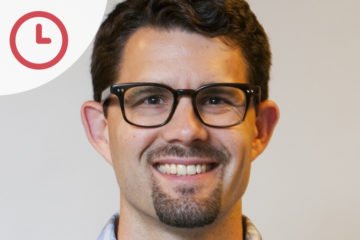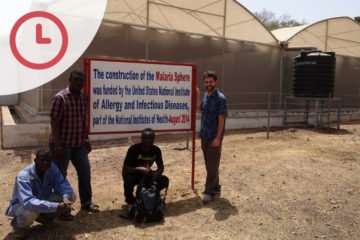Podcast Available on iTunes and Spotify.
Hello, I’m Thomas Locke and this is Five Minutes, the podcast that brings you closer to the malaria experts.
One year ago, leaders of the Commonwealth countries pledged to reduce malaria cases by half by 2023. The pledge was made at the Malaria Conference in London. One year on, what has been done to try and achieve that aim? Well, last night, Malaria No More held a panel in London to try and answer that very question.
To learn more, I’m joined by Kate Wills of Malaria No More. Kate, what happened last night?
We used the event at the Science Museum to bring together a panel of key leaders from across the malaria fight to ask the question of what would it take to halve malaria in the Commonwealth by 2023. On the panel, chaired by Dr Winnie, the Chair of the Board of RBM, the panel included the Deputy Director General of the WHO, Dr Soumya, Joy Phumaphi of ALMA, Ken Staley of PMI, Matthew Rycroft of the UK government. Also, Peter Sands of The Global Fund and the High Commissioner of the Rwandan government. They all play a critical role in taking in and making sure that the commitments that were made in 2018 can be realised.
What sort of messages are you hearing from these world leaders and these stakeholders with regard to the commitments made last year? I mean, we won’t see cases full in statistics just yet, but is there a sign that efforts are being made to achieve these goals?
Yes, we opened our event with a with a statement from Patricia Scotland, the Director General of the Commonwealth and what she said was the very strong and powerful message about how a unified Commonwealth, bringing together business, science, country leaders, when the Commonwealth steps up and works together, there is nothing that it cannot achieve. That malaria commitment that was made last year, it was not made in a flippant way. It was made very carefully, very consciously in line with the WHO targets. It was made because leaders felt that it was something that, whilst it wouldn’t be easy to reach, it certainly was achievable. So we are hearing Governments like Rwanda who were on the panel tonight. We’re hearing PMI, we’re hearing the importance of taking that commitment seriously and making sure that it wasn’t just words that got put in a communique in 2018, but it’s something that we can use to harness energy and momentum and really drive towards achieving 2023. But also very powerfully, a recognition that if we meet halving malaria in the Commonwealth in five years, then actually that will enable the rest of the malaria fight to get back on track, or it will certainly get a really big boost and give people a sense that we can reach the 2030 target, which of course is what we’re all looking towards longer term.
Is there talk, in trying to achieve these goals, about new technologies and about using data strategically. Is there anything that is being done to actually make sure that this is a really effective effort?
Yes, the message of the Summit in 2018 with four key areas that we focused on. We looked for new money, new leadership, new tools and a new story. I think those four areas are very much still alive and being discussed. There was a lot of discussion at the event in London around the fact that we couldn’t be complacent, but we needed to use the tools that were working to the most powerful effect, whilst they still worked, but that we also needed to be realistic about the fact that the mosquito and the parasite are adapting and therefore we need to stay on our toes and make sure that that new innovation, the new research and development was happening. I think what was very powerful about the event overall, and also about the Summit itself, was that we were talking about collaboration. Collaboration between countries, a collaboration between science institutions, between a multi-sector partnership. We were celebrating the fact that there were so many different roles that need to be played, talking about you know the vital importance the private sector coming in and of new innovative financing models.
Kate Wills, thank you so much.
Thanks, Thomas.


